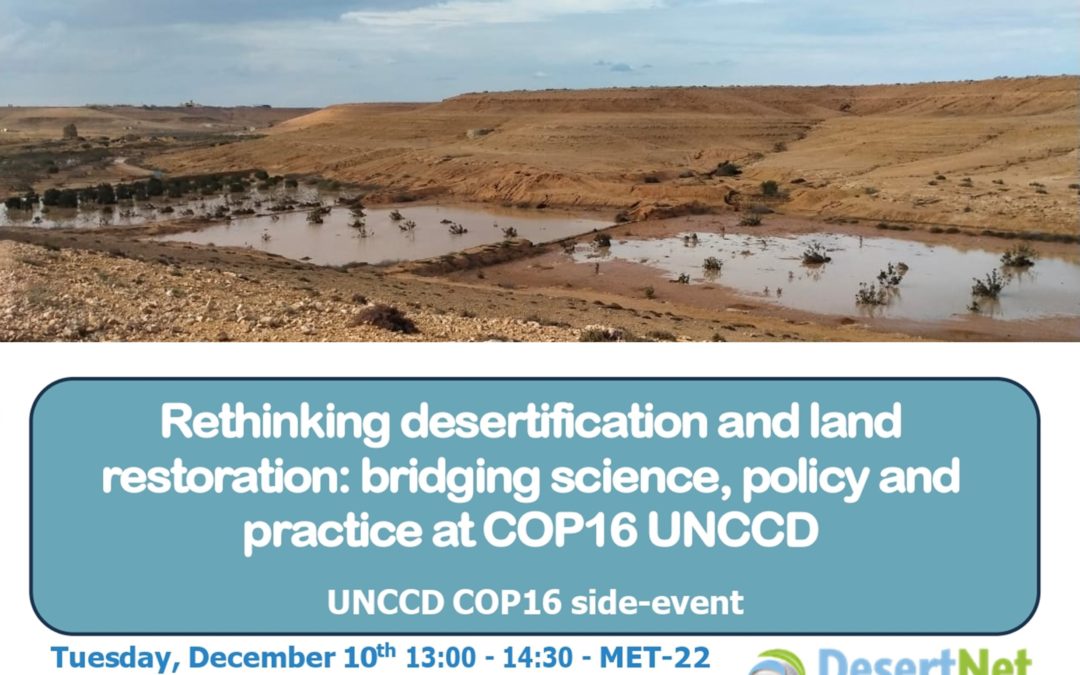“Rethinking desertification and land restoration: bridging science, policy and practice”: 𝗗𝗲𝘀𝗲𝗿𝘁𝗻𝗲𝘁 𝗜𝗻𝘁𝗲𝗿𝗻𝗮𝘁𝗶𝗼𝗻𝗮𝗹 organizes December 10 a side-event at 𝗖𝗢𝗣𝟭𝟲 United Nations Convention to Combat Desertification in Riyadh, Saudi Arabia. In partnership with SALAM – MED, PrimaProgram, CIHEAMBari, Agenzia Italiana per la Cooperazione allo Sviluppo. Chair:
Mauro Centritto, UNCCD CSO, WatDev project. Key-note speakers: Matthew D Turner, Univ of Wisconsin USA
Francois Tapsoba, Consultant. Best practices: Pier Paolo Roggero SALAM MED project (PRIMA), Aymen Sawassi WATDEV project (EU DeSIRA). Panel: Anna Luise, Chair, CCD Committee of the Whole, Jaquiang Lei, Chinese Academy of Sciences TBC,
Martino Melli, AICS Egypt, Representatives of the Scientific community TBC.
Desertification efforts must evolve as research reveals the complex interplay between land use and climate. Land use changes, like afforestation and agriculture in arid areas, have both positive and negative climatic impacts. Aligning land management with climate policies is essential for effective desertification control and sustainable land use.
The side event aims to:
- Bridge science and policy to transform insights on land use and climate interactions into actionable policies.
- Address challenges of “desert greening” and land use changes, including land abandonment, by identifying risks and design mitigation strategies.
- Highlight the role of research and academic organizations in understanding the complex socio-ecological dynamics of desertification and promoting innovative solutions for sustainable land and water management.
- Create learning spaces that hybridize scientific and local knowledge, engaging stakeholders to develop adaptive strategies for managing land and water in arid and semi-arid regions.
By bringing together a diverse audience — policymakers, government representatives, scientists, international organizations, NGOs, CSOs, community leaders, practitioners and
media professionals — the event aims to promote critical paradigm shifts in addressing desertification, land degradation and drought.
Expected outcomes:
(i) Enhanced understanding of desertification issues related to greening and land and water use;
(ii) Strengthen the science-policy interface;
(iii) Address emerging challenges in arid regions by highlighting risks and opportunities of the “greening” approaches and land use change, and promoting new sustainable land and water management strategies;
(iv) Provide opportunities for networking and collaboration among stakeholders committed to address desertification challenges beyond the “greening” stereotypes of an urban-society vision.

